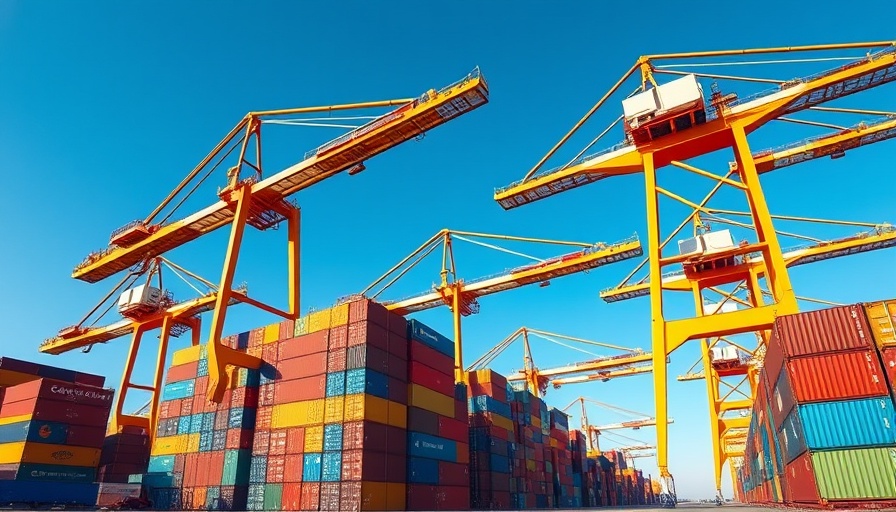
Understanding Nigeria's Trade Ambitions
Nigeria, Africa's largest economy, has long been aspiring to enhance its global trade standing, but various barriers persist that hinder this progress. These roadblocks significantly impact the country’s ability to engage competitively on the world stage, causing friction in trade relationships that could otherwise benefit economic growth.
Key Barriers Impacting Global Trade
Among the most significant barriers are inadequate infrastructure, which includes deficient transport systems and overcrowded ports. An efficient logistics network is vital for seamless trade operations, yet Nigeria's infrastructural deficits impose delays and increased costs. The World Bank has reported that the inefficiencies in Nigeria’s ports can lead to an increase in shipping costs by as much as 20% compared to global averages.
Regulatory Challenges and Bureaucracy
Compounding logistical issues are complex regulatory environments that can stifle trade initiatives. Overlapping tariffs and import duties create confusion and constraints for businesses looking to enter or expand in international markets. Furthermore, Nigeria’s trade policies often lack the consistency required to foster long-term investment and planning.
Rethinking Trade Strategy
To truly harness its trade potential, Nigeria must prioritize reforms that address these systemic barriers. Investing in infrastructure improvements, streamlining trade regulations, and facilitating public-private partnerships could lay the groundwork for a more vibrant trade ecosystem. As the rest of Africa is increasingly integrating economically through initiatives like the African Continental Free Trade Area (AfCFTA), Nigeria must adapt swiftly to not fall behind its peers.
Conclusion: A Call for Action
The pathways to overcoming these barriers are clear but require immediate action and commitment from stakeholders, including government and private sectors alike. Evolving trade strategies and creating a conducive environment for international partnerships could position Nigeria as a formidable player in global trade. Only through collaborative efforts can the continent's most populous nation harness its potential in the global market.
 Add Row
Add Row  Add
Add 




Write A Comment